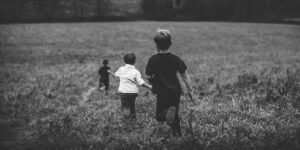By: Yasser Abdelshafy
In a tucked-away corner of New York City, far removed from the grandeur of concert halls and the pressure of competitions, pianist and educator Zengdi Fan is quietly challenging traditional ideas about age and music. Her students are not prodigies with polished fingers, but seniors in their 70s and 80s. Yet, in this modest senior center classroom, the stakes can feel surprisingly high.
“Most of my students never had the chance to touch a piano before,” Fan says. “Life got in the way—raising families, forging careers, surviving. Now, in their twilight years, music is finally within reach.”
Fan’s credentials are strong. Educated at Art College of Yangtze University in China and trained under Dr. Patrick Kreeger from the Juilliard School, she spent years nurturing an award-winning studio back home. But her path took a profoundly unexpected turn after relocating to America.
Initially, Fan began teaching seniors as a way to stay connected to her craft while studying. However, she quickly found herself captivated by their unwavering enthusiasm and vulnerability. “I didn’t foresee how deeply these lessons would change my life,” she admits.
Her classes blend rigorous classical methods with a deep sense of compassion. She adjusts fingerings to ease stiff joints, introduces musical notation patiently, and selects melodies steeped in nostalgia. “This isn’t about polished performances,” Fan insists. “It’s about the journey. Every tiny breakthrough—playing a familiar tune or mastering a chord—is something worth celebrating.”
Remarkably, her students meet the challenge with spirited determination. “One woman confided that piano was her first new learning experience in decades,” Fan recalls. “Now she practices diligently each morning, before she even sits down for breakfast.”
Teaching older adults demands an entirely different form of listening—one attuned to life stories, memories, and emotional landscapes. “They aren’t just learning keys and rhythms,” Fan quips. “They’re sifting through memories, navigating old regrets, and reclaiming moments of joy. Sometimes, a single melody sparks a flood of memories.”
These intersections of music and life have deeply influenced Fan’s vision of music education. Research has increasingly highlighted music’s profound therapeutic effects on older adults, particularly those with dementia. The celebrated neurologist Oliver Sacks has documented music’s unique ability to revive submerged memories and reinforce a sense of self, often when other faculties fade away. Similarly, Fan’s students frequently find themselves rediscovering lost moments and emotions through the gentle power of the piano.

Photo Courtesy: Zengdi Fan
“We easily forget that the piano isn’t just a technical pursuit—it’s emotional,” she observes. “Even when my students miss notes, their playing reconnects me with the essential purpose of music.”
Recently, Fan began organizing small recitals, gently encouraging students onto the stage. Initial reluctance gave way to quiet triumph. “I could see the blend of anxiety and pride in their eyes,” Fan notes. “And when they finally played, everyone was silent, utterly moved.”
As society grapples with aging populations and rethinks lifelong learning, Fan calls for a broader embrace of older beginners. “They may never appear at Carnegie Hall, but they demonstrate that artistry transcends age. It’s about courage, curiosity, and connection,” she says passionately.
Fan continues her gentle revolution quietly, lesson by lesson. Her students may never stand under the bright lights of fame, but they’re composing the soundtrack to their lives. And for Fan, that quiet triumph is deeply meaningful.









